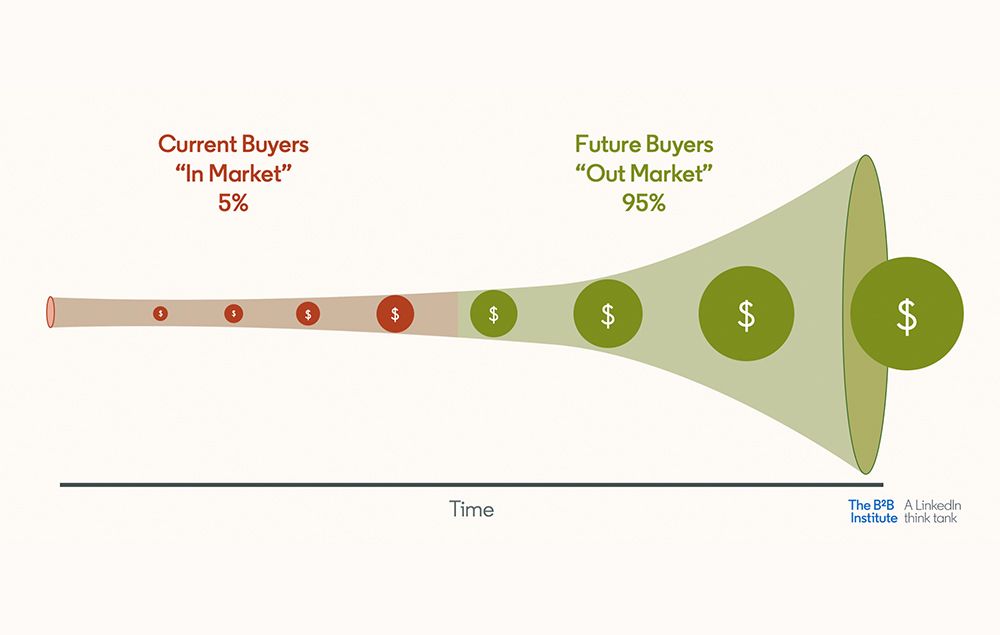-
 Dennis Damen / Brand Strategist
Dennis Damen / Brand Strategist
What is Purpose Marketing?
Purpose marketing, originating in the United States, stems from the growing consumer interest in sustainable and responsible business. It's all about more than profit; Companies must embrace broader social goals that go beyond pure financial gain. Often the purpose of an organization is in line with the 'Why' or Mission. Purpose marketing means communicating on business activities that contribute to a better world.
Green energy from Shell
The application of purpose marketing is clearly visible in the recent Shell campaign, in which sustainable energy is central. Environmental organizations and the British advertising supervisor question their sincerity and call it 'Greenwashing'. Which means that organizations occur greener or more social than they are actually. The figures support this skepticism: 15 percent of the jobs at the Sustainable Energy Division disappear during the campaign and Milieudefensie reports that Shell is investing only 12 percent in sustainable energy. Where is the communication about the remaining 88 percent?
Does 'Purpose Marketing' help Shell in this case or are they going wrong? Probably both. Research shows that consumers attach importance to corporate social responsibility, but its assessment is mainly based on how companies communicate about it. Shell can well profile what they do to CSR policy, but it remains essential to act according to what they promise.
Kruitvat wants 'Sustainability for everyone'
Another current example of Purpose Marketing with a Sustainabiltity Focus is the recent Kruidvat campaign, which is about 'Sustainability for everyone'. As part of this campaign, Kruidvat will stop selling plastic disposable bags, in which the introduction of the 'sustainable shopper' plays a prominent role. Kruidvat and Trekpleister jointly call on their customers to take their own bag to the store. Whether Kruidvat is at the forefront of sustainability can be disputed, but they are at least steps in the right direction. Nevertheless, it is a well -considered transformation from a 'price fighter' to a 'Hartendief'.
'Human' telecom with Odido
Also when the new brand Odido, originated from T-Mobile Nederland and Tele2, there was extensive use of Purpose Marketing. Odido claims to improve the telecom sector by making it 'more human'. Although the specific elaboration of this is not yet clear, customer service so far still starts with the well -known selection menu and associated robot voice, and a chatbot remains active on the website. It remains to be seen what exactly Odido will do to shape the telecom in a 'more human' way.
The great contrast between 'marketing' and 'purpose'
The contrast between commercial profit and CSR does not only apply to Shell, but actually to most organizations. Even in the term 'Purpose Marketing' a contradiction occurs between 'marketing' and 'purpose'. Marketing often focuses on brand awareness and stimulating purchases, while 'purpose' is broader, such as combating climate change or combating inequality. Since such goals do not always provide commercial benefits, this contradiction forces companies to find a balance between commercial goals and social responsibility.

Landslide in the business world
Purpose marketing is not a temporary trend; It is a landslide in the business world. More and more companies show at least the intention to look beyond profit. This is partly driven by the support of consumers for brands that contribute to positive change, resulting in loyalty and growing market shares. For organizations it is no longer enough to focus exclusively on their products and services, but also on the contribution they make to society.
Companies such as Tony Chocolonely, The Ocean Cleanup or Patagonia are often cited as positive examples. Yet these companies are more exceptions than the rule. Very few companies have their right to exist to a social purpose. For most companies, 'Purpose Marketing' must be carefully considered.
Act to what you promise
As an organization, it is crucial to be reluctant with purpose marketing. Everything must be in line with the DNA and the ambition of your organization, and more importantly, you also have to act on what you promise with purpose marketing.
Feel free to communicate the social efforts of your organization to your target group, but keep the focus on what the company really makes and makes growth possible. The success of your company creates the space to invest in 'purpose' goals.
Tips for successful purpose marketing
- Identify an authentic goal: choose a goal that is sincere and matches the core values of your company. Buyers see through fads.
- Communicate clearly: make your purpose clear and communicate this understandably. Show how your company is committed to positive change.
- Internal involvement: involve your employees in the purpose story. Internal involvement ensures authentic external communication.
- Measure and share Impact: Show the impact of your efforts. TRACH contact us ANTIE MENTAL CREALE.
- Create interaction: courageous to participate in your purpose initiatives. Customer involvement increases the result of your efforts.
Start with purpose marketing
Purpose marketing transforms the way in which companies operate and communicate. Look beyond just profit and try to make an impact that transcend the boundaries of your company or industry. Start with the well-thought-out use of Purpose Marketing and Bring Purpose Initiatives in your communication, without losing sight of the core of your business activities.
Contact Us about your purpose marketing strategy?
contact us about your purpose marketing strategy? Feel free to contact us for a non-binding consultation.




























































Be inspired by our cases, insights and market trends.


